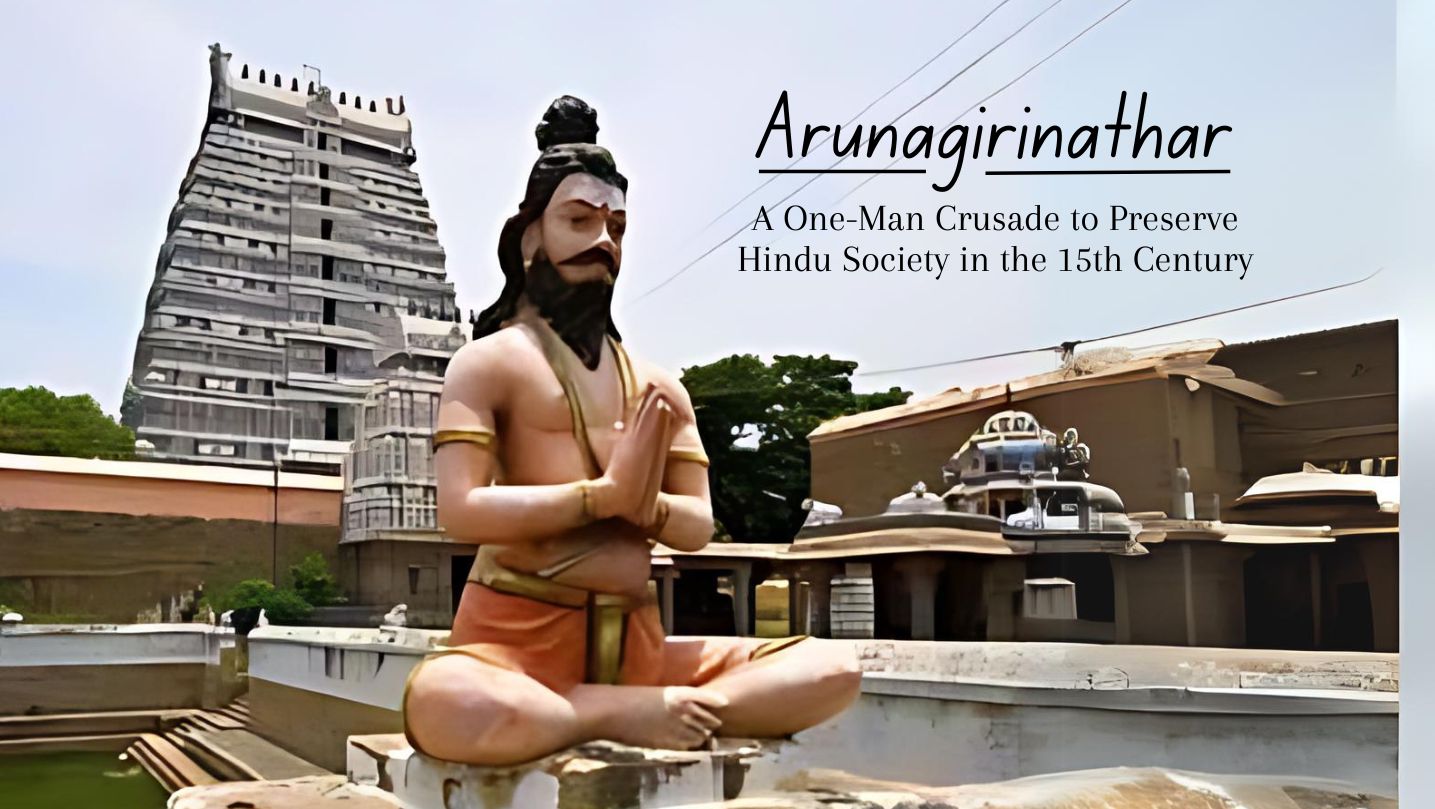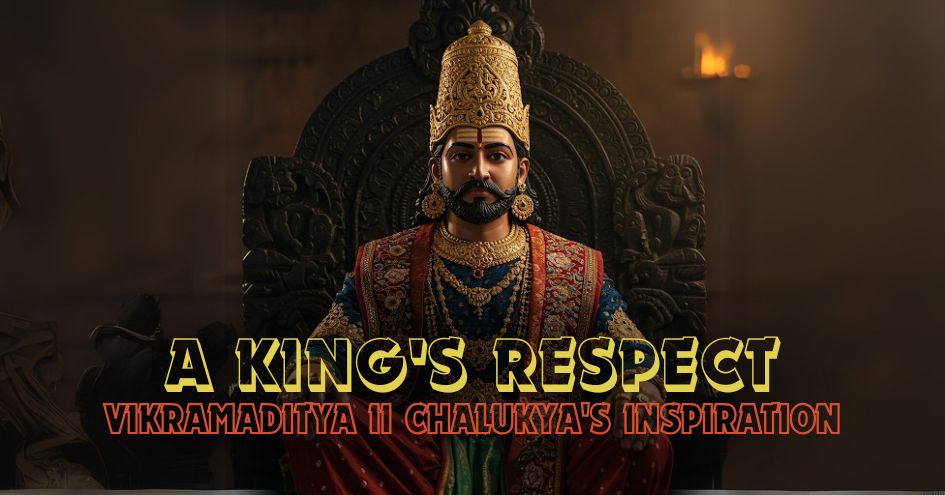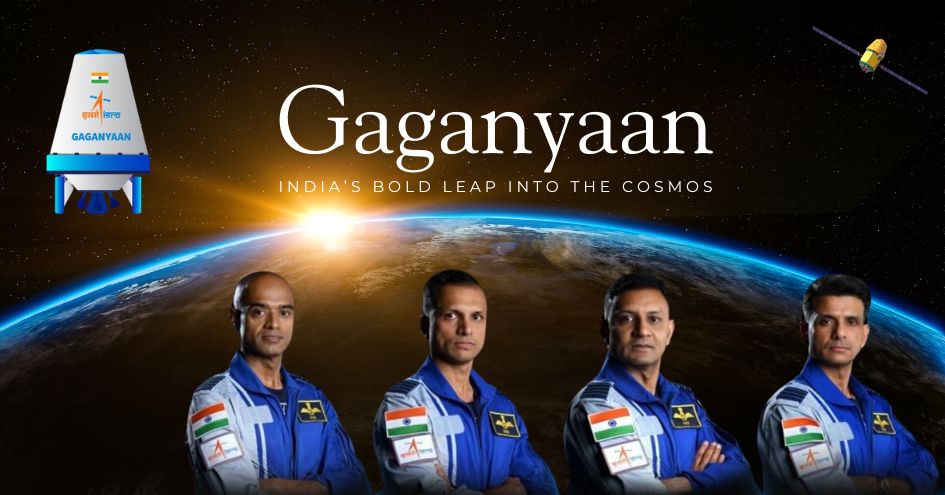
The Pride of Tamil Nadu
Arunagirinathar, a devout Tamil-hindu poet, directed a significant personal campaign to protect Hindu society during the 15th century. His family had a longstanding devotion to Lord Muruga, a tradition he upheld passionately. In his renowned work, Tiruppugazh, he invokes Lord Muruga, saying, "Oh, Kanda! The glorious God of the hills! Pray bestow Thine blessings accepting the ardent worship of this humble son to You, my ancestral deity."
His extensive education in religious and spiritual literature began early in life. Arunagirinathar was well-versed in Tamil, excelling in both expression and learning. His familiarity with works like Tevaram, Tirukkural, Kārigai, Ula, Easal, Kalambakam, Kovai, Sindu, Madal, and Malai is evident in his compositions. He also mastered the art of crafting eulogies for wealthy patrons, often receiving financial gifts in return. His works are rich with Sanskrit words, reflecting his knowledge of various Hindu scriptures including the Itihasas, Puranas, Gita, Upanishads, Agamas, and several other Sastras.
Arunagirinathar's proficiency in Sanskrit suggests he could have produced original works in the language. Such a level of learning would have required a family deeply rooted in cultural and religious traditions, ensuring that every young male received a high standard of education from an early age.
Literary Contributions and Devotion
Arunagirinathar, who lived in the 15th century, is best known for creating Tiruppugazh, a collection of poems praising Lord Muruga. Originally consisting of 16,000 songs, only about 1,367 have been preserved. His poems are celebrated for their lyrical beauty, intricate rhymes, and rhythmic complexity. Tiruppugazh is a major work of medieval Tamil literature, blending literature and devotion seamlessly, and is noted for its poetic, musical, religious, moral, and philosophical qualities.
Born in Thiruvannamalai, Tamil Nadu, Arunagirinathar's early life was marked by tragedy and indulgence. His father died shortly after his birth, leaving his mother and sister to raise him with their cultural and religious values. However, he succumbed to a life of debauchery, frequently visiting devadasis and exhausting his sister's earnings. Stricken with leprosy and shunned by society, he realized his selfishness only when his sister, out of desperation, suggested he sell her for money. This epiphany drove him to attempt suicide by leaping from a temple tower, but he was miraculously saved by Lord Muruga, who transformed him into a saint.
A Crusade for Moral Revival
Arunagirinathar perceived the decline of the Vijayanagara Empire, a bastion of resurgent Hindu culture resisting Islamic advances in the Deccan, as a result of deteriorating moral values among rulers and commoners alike. To counter this, he launched a one-man resurgence campaign, focusing on temples and creating captivating musical hymns.
His works are numerous and varied, including:
1. Thiruppugazh: Praise of Lord Muruga. Of the 16,000 hymns he composed, only 1,367 remain. Except for six hymns dedicated to Lord Ganesha, all others honor Lord Muruga.
2. Kanthar Antati: 102 stanzas on Skanda in Kattalaikkalitturai metre, with each stanza starting with ci, cee, ce, cey, ti, tee, te, or tey.
3. Kanthar Alankaram: 102 stanzas in Kattalaikkalitturai metre, often referred to as the 'Tiruvasagam' for Muruga.
4. Kanthar Anuputhi: 51 stanzas reflecting on the perception of Skanda.
Arunagirinathar's compositions address societal issues, advocating self-discipline and high ethical standards. They highlight the importance of Muruga bhakti (devotion to Muruga) and its necessity for moral and spiritual upliftment.
 Dakshinamurthy is a scholar and researcher of Indic themes and a contributing writer of The Verandah Club
Dakshinamurthy is a scholar and researcher of Indic themes and a contributing writer of The Verandah Club
NEXT ARTICLE

Indian History is rife with conflict between kings for power, territory and regional supremacy. We have seen instances where kings have made it a poin...

"Saare Jahaan Se Accha, Hindustan Hamara!"These immortal words, spoken by Squadron Leader Rakesh Sharma from the vast expanse of space in 1984, When t...

High in the rugged, unforgiving terrain of Jammu and Kashmir’s Reasi district, where the Chenab River slices through deep gorges and the Himalayas loo...